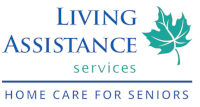Caring for an aging parent has become more difficult than it once was as we are in the throes of what has been coined the “sandwich generation”.
The term “sandwich generation” refers to a generation of people, usually middle-aged, who care for their aging parents while still supporting their own children.
Elderly Care Usually Falls on the Daughter
According to the Canadian Women’s Health Network, women do up to 80 percent of the caregiving. Trying to provide elderly care for a parent(s) while also supporting a child and balancing work and life responsibilities can quickly take a toll on your physical and mental health, as well as your relationships with loved ones and even colleagues.
The Impact of Caring for Loved Ones
Several studies have confirmed links between caregiving and psychological and physical health problems, noting that the intensity of the caregiving greatly impacts the caregiver’s health. Providing home care for your parent becomes even more challenging as they age or when they’re dealing with chronic illness.
A survey by Statistics Canada found that caregivers reported physical and emotional symptoms brought on by the stress of caregiving, including:
- Fatigue
- Anxiety
- Feeling overwhelmed
- Anger and irritability
- Feeling alone or isolated
- Depression
- Loss of appetite
- Sleep problems
It’s not surprising that the stress of being the one providing elderly care for a parent while also trying to juggle parenting and work leads to more illness, sick days from work, and in some cases an extended leave of absence to deal with medical emergencies and illness.
Meet Jane
Jane is a prime example of the sandwich generation and its effects. When her elderly mother was no longer able to live on her own, there was no question in her mind that the best place for her was at home with Jane, her husband, and two sons. She was sure that she could balance her career, being a mother and wife, and a caregiver. At first, it seemed manageable, but within a couple of months Jane was exhausted. Even though her sons were teenagers, they still required rides to hockey practice and other activities. Her husband did what he could to help with his long hours, but most of the responsibility fell on Jane.
Everyone could see it was all taking a toll on her but she continued to put on a brave face and do it all until recently when she broke down and admitted that she was feeling overwhelmed, hopeless, and trapped. You could hear the guilt in her voice when she admitted that she felt like she just wanted to run away from it all.
Getting Help with Home Care
Jane, like many others in her situation, thought that private home care was too expensive or only for those who required very advanced home care because of illness. Fortunately, that’s not at all the case; home care services can be catered to your specific needs and budget. After going through the different senior care services offered, she was able to get help that worked not just for her elderly mother, but her entire family.
Respite care allows Jane to take a break from the stresses of caregiving as little or as often as she needs each week. Jane is now able take her sons to practice and even have a few hours to run errands or unwind over coffee with a friend, all while knowing her mother is in the capable hands of a senior care professional.
She learned that home health care agencies have services that she can adapt with her mother’s changing health so that she always gets the best possible home care.
It may not be easy to hand over some of the responsibility, but getting professional home care assistance has helped Jane balance the challenges of caregiving and her other responsibilities and it can do the same for you.
David Porter, CPCA
Director
Living Assistance Services – Senior Home Care
Article Resources:
http://www.cwhn.ca/node/40811

